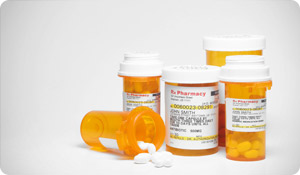
If you're taking statin drugs to reduce your cholesterol levels, you may not only be lowering your heart attack risk-you could lower your risk of developing gallstones as well. In a new study published in the Journal of the American Medical Association, Swiss researchers found that patients taking statin drugs for one year reduced their risk of developing gallstones by one-fifth. The researchers looked at the medical records of over 130,000 patients and found that all statins reduced the risk of gallstones, but that those patients taking high-dose statins reaped the most benefit with fewer gallstones than those patients on lower-dose statins. The risk was higher, however, for patients who were on statins but were obese or took the hormone estrogen.
More than one million Americans are diagnosed with gallstones (cholelithiasis) each year-the problem is more common in women than men-and more than 700,000 will have their gall bladders removed in a procedure called a cholecystectomy. Most gallstones are small, hard deposits made up of bile saturated with cholesterol. Statin drugs reduce the amount of cholesterol in the body and, according to the study findings, they appear to also reduce the risk of gallstones by lowering the amount of cholesterol concentrated in the bile. Biliary colic, also known as gallstone pain or biliary pain, is the most common symptom of a gallstone problem and is characterized by attacks of stomach pain, but it can also be felt in the back and right shoulder and also cause nausea and vomiting.
Although the exact reasons gallstones develop are not known, there are certain risk factors that make you more susceptible to the problem, including:
- Age-Risk increases with age, especially after age 40
- Family history-Gallstones tend to run in families, suggesting a genetic link
- Pregnancy
- Certain medications-Medicines containing estrogen, such as birth control pills, appear to raise risk
What You Can Do to Prevent Gallstones
- Maintain a healthy weight-Obesity is one of the biggest risk factors for the development of gallstones
- Eat a diet low in fat and high in fiber-Stick to a diet that includes lots of fruits and vegetables and foods high in unsaturated fats, including fish and nuts
- Don't smoke
- Avoid drinking large amounts of alcohol
- Drink coffee-A study by the Harvard School of Public Health found that drinking coffee lowers the risk of gallstones.
- Get moving-Studies show that regular exercise most days of the week can lower the risk of gallstones





